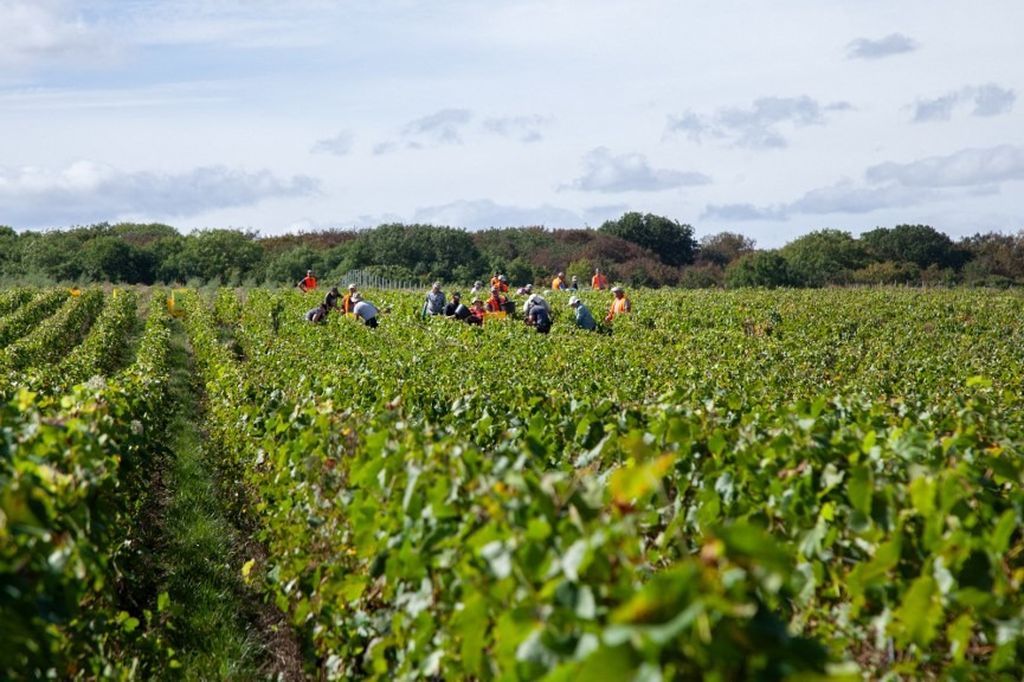Two years after the facts, employers find themselves in court for having exploited more than fifty harvesters in Nesle-le-Répons. Many of these workers are Africans, some of whom were undocumented, who chain “little jobs”. Of “slavery”, according to the lawyer for the harvest.
:no_upscale()/2023/07/07/64a7df4c5fe71_placeholder-36b69ec8.png)
Published
Updated
Reading time: 5min
:no_upscale()/2025/06/18/080-hl-abreznay-2163657-6853230c646c1444971797.jpg)
The black side of the harvest in Champagne. Two years after the facts, subcontractors are tried Thursday, June 19 for having operated more than fifty workers. Some have been treated as “slaves”According to the accusation. Several of these harvests are determined to defend themselves, their memories remain intact.
Amadou Boully Diaro has not forgotten anything. “We Africans came here to work. The gentleman treated us as slaves”testifies this 38 -year -old Senegalese, without paper, met in a Parisian cafe. He was one of the 57 harvesters discovered in a house in the village of Nesle-le-Répons, in the Marne, on September 15, 2023. “There are Senegalese, Malians, Guineans”, he list.
When the gendarmes intervene after reports of residents, the harvesters have been sleeping for a week, 15 in small bedrooms, on inflatable mattresses, some on the floor.
“There is no window, no current, no hot water, no heating. There is a very dirty inflatable mattress. It is a disaster.”
Amadou Boully Diaro, 38 -year -old Senegalesein franceinfo
They were recruited by word of mouth by the company Anavim, which sells their workforce to Champagne winegrowers and which promises them a salary that many will never receive. “She says that we are going to do the harvest, that we will win 80 euros per day, and that there are premiums too. But no, she did not give anything, she did not pay.”
Mush Kanouté is 64 years old and he was then the dean of the harvest. This Malian has a residence permit. In addition to the unhealthy accommodation, he says that they had to look for enough to eat because what was given to him was interimstable. “We don’t eat! Bread, you can’t eat it because it is frozen, he tells. At that time, there was corn next to it. There are two young people who went to grill him, and we ate him.“In France, for almost 25 years, Mody Kanouté, who has been on what he calls “Les Petits Boulots”said, too, never has been treated like that.
These harvests also speak of hellish rates. Wake up at 5 am, departure for the vines in a truck for a day without break, according to Mcy Kanouté. “Like a slave, you have to run all day, until 5 o’clock in the evening, having started at 5 am, he says. Sometimes you have to work until 6 p.m.
“I didn’t think you could take people and mistreat them like that.”
Mush Kanouté, 64 -year -old Malianin franceinfo
Mistreated and threatened even with a knife. This is what he says that he had suffered from one of the two employees. “We have threats by firearm, threats with knives, threats with tear gas, Lists Maxime Cessieux, the lawyer for the harvest in this case. To this extent, yes we can really speak of slavery. People without residence permit are people who seek, for their vast majority, simply to work on the national territory. They are often in the hands of unscrupulous people. They must be protected by a status. ” Employers are also accused of having had false employment contract signed.
Faced with these serious accusations, the lawyer for the business of Kyrgyzistan, did not follow up on our requests. But Nader Ajoyev, who defends one of the employees accused of having threatened the harvest with a knife, responded to Franceinfo. If he denies these accusations, he recognizes drifts and explains them by the shortage of labor. “We face a lack of crying labor, forcing some to go beyond legality, he assures. It also concerns the building, the restoration and it testifies more to a lack of control by the authorities. “
To prevent this from starting again and best welcome the 120,000 seasonal workers wanted each year in the region, the interprofession, which brings together 16,000 Champagne winegrowers, claims to have set up a platform. A platform on which providers are invited to register, subject to respecting the safety and well-being of the harvest. But only one in five business has registered for the moment, for lack of visibility, according to the interprofession. The prosecutor of Châlons-en-Champagne, Annick Browne, appointed a magistrate in 2024 specially dedicated to questions relating to the trafficking of human beings. A similar case, whose facts also date back to September 2023, will be tried before the Criminal Court of Châlons-en-Champagne on November 26.


